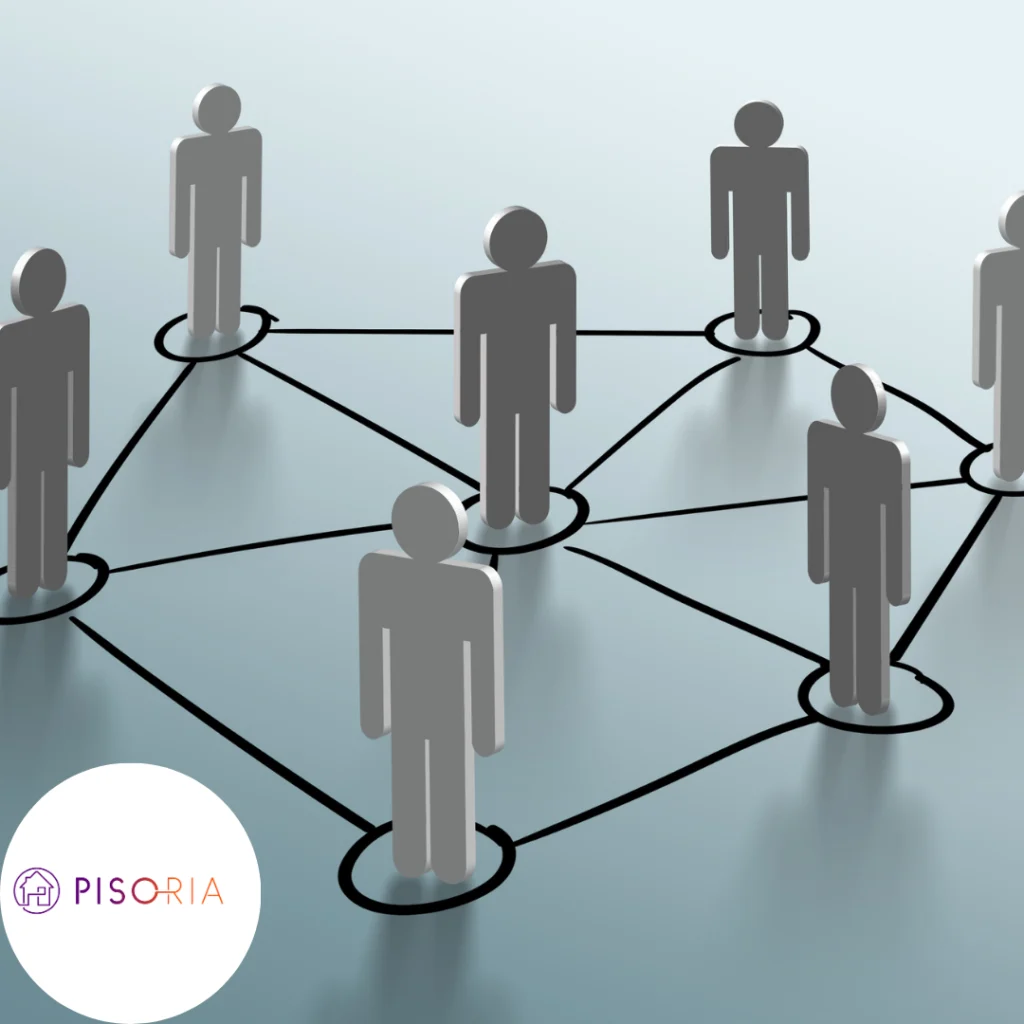The Rise of Remote Landlords: Managing Properties from Abroad in 2024

In today’s interconnected world, the concept of remote landlords has gained significant traction among property investors and landlords. With the advancements in technology and the growing trend of globalization, managing rental properties from abroad has become increasingly feasible and attractive. This blog aims to explore the rise of remote landlords and provide valuable insights and tips for landlords who oversee their properties from afar.
The Advantages of Remote Landlords
Being a remote landlords offers a multitude of benefits for property owners. One of the key advantages is the flexibility and freedom it provides. By leveraging technology and outsourcing tasks, landlords can effectively manage their properties from anywhere in the world, allowing them to travel or pursue other interests without being tied down by geographical constraints.
Furthermore, being a remote landlord opens up opportunities for increased profitability and diversification of investment portfolios. Landlords can invest in properties in different cities or countries, spreading their risk and potentially maximizing returns. Additionally, remote management reduces the need for physical presence, minimizing overhead costs associated with travel and property maintenance.
Moreover, remote landlords can take advantage of favorable market conditions in different regions, capitalizing on emerging trends and investment opportunities. By diversifying their property portfolio across multiple locations, landlords can mitigate risks and optimize returns, enhancing their overall investment strategy.
Overcoming Challenges: Legal and Regulatory Considerations
Despite its many benefits, being a remote landlords also presents unique challenges, particularly in terms of legal and regulatory compliance. Landlords must familiarize themselves with local landlord-tenant laws and regulations in each jurisdiction where their properties are located. This includes understanding rental regulations, eviction procedures, and tax requirements.
To overcome these challenges, landlords can seek legal advice from experts familiar with the laws in the respective regions. Additionally, there are online resources and forums where landlords can stay updated on the latest legal developments and seek guidance from peers in similar situations.
Moreover, maintaining compliance with tax regulations is essential for remote landlords to avoid potential penalties or legal issues. Landlords should consult with tax professionals to ensure they are fulfilling their tax obligations in each jurisdiction where they own property, taking advantage of available deductions and incentives where applicable.
Effective Communication Strategies with Tenants
Clear and consistent communication with tenants is essential for successful being a remote landlords. Establishing open lines of communication helps to build trust and rapport with tenants, ensuring that issues are addressed promptly and effectively. Landlords can leverage various communication tools and platforms, such as email, messaging apps, and property management software, to stay connected with tenants regardless of their location.
Setting clear expectations and communication protocols from the outset is crucial for avoiding misunderstandings and conflicts. Landlords should provide tenants with multiple channels for reporting maintenance issues or emergencies and respond to inquiries in a timely manner to maintain tenant satisfaction.
Moreover, fostering a positive landlord-tenant relationship is key to minimizing turnover and maximizing tenant retention. By demonstrating professionalism, responsiveness, and empathy, landlords can cultivate a sense of loyalty and trust with tenants, reducing the likelihood of disputes or vacancies.
Leveraging Technology for Remote Property Management

Technology plays a pivotal role in facilitating remote property management. Property management software, in particular, offers a wide range of features and functionalities to streamline administrative tasks, such as rent collection, lease management, and maintenance tracking. These platforms provide landlords with real-time access to property data and analytics, enabling them to make informed decisions regardless of their physical location.
In addition to property management software, landlords can leverage smart home technology to enhance security and monitoring capabilities. Smart locks, security cameras, and remote access control systems allow landlords to remotely monitor their properties and ensure the safety of tenants and assets.
Furthermore, emerging technologies such as artificial intelligence (AI) and machine learning are transforming the way landlords manage their properties remotely. AI-powered tools can analyze data trends, predict maintenance needs, and optimize property performance, allowing landlords to make data-driven decisions and maximize efficiency.
At pisoria we have been using Arthur and it’s very efficient.
Building a Reliable Support Network
While technology plays a significant role in remote property management, having a reliable support network on the ground is equally important. Property managers, real estate agents, contractors, and other local professionals can provide invaluable assistance in overseeing day-to-day operations, handling maintenance issues, and addressing tenant concerns.
Building and maintaining relationships with local service providers is essential for ensuring timely and efficient property management. Landlords should conduct thorough research and due diligence when selecting service providers, seeking recommendations from trusted sources and verifying credentials and qualifications.
Moreover, establishing a network of reliable contacts and partners can provide remote landlords with peace of mind and assurance that their properties are being well-managed in their absence. By fostering strong relationships with local professionals, landlords can effectively delegate tasks and address challenges as they arise, minimizing disruptions and maximizing efficiency.
Additionally, at Pisoria, we have experience managing properties for landlords residing in various parts of the world, including America, Australia, and the Middle East. Our global network and expertise enable us to provide comprehensive property management services tailored to the unique needs and requirements of remote landlords.

Financial Management and Budgeting Tips
Effective financial management is critical for remote landlords to maintain profitability and sustainability. Budgeting for recurring expenses, such as mortgage payments, property taxes, insurance premiums, and maintenance costs, is essential for ensuring adequate cash flow and reserves.
Landlords can utilize financial management tools and software to track income and expenses, monitor cash flow, and generate financial reports. By maintaining accurate and up-to-date financial records, landlords can make informed decisions and identify areas for cost-saving or optimization.
Setting aside reserves for unexpected expenses, such as repairs or vacancies, is another important aspect of financial planning for remote landlords. Having a contingency fund ensures that landlords can cover unforeseen costs without disrupting cash flow or jeopardizing property investments.
Moreover, remote landlords should regularly review and update their financial projections and investment strategies to adapt to changing market conditions and mitigate risks. By staying informed and proactive, landlords can safeguard their financial interests and position themselves for long-term success in remote property management.
Maintaining Property Value and Tenant Satisfaction
Maintaining property value and tenant satisfaction are key priorities for remote landlords. Regular property inspections and maintenance are essential for preserving the condition of the property and addressing any issues before they escalate. Landlords can schedule routine inspections or enlist the help of local property management companies to conduct inspections on their behalf.
Addressing tenant needs and concerns in a timely and responsive manner is crucial for fostering positive tenant relationships and ensuring tenant satisfaction. Landlords should provide clear channels for tenants to report maintenance issues or concerns and respond promptly to inquiries or requests.
Moreover, proactive property maintenance and upgrades can enhance the overall tenant experience and increase tenant retention. Landlords should prioritize investments in property improvements that add value and improve tenant comfort, such as energy-efficient upgrades, landscaping enhancements, and amenities upgrades.
Conclusion
In conclusion, being a remote landlords offers numerous benefits and opportunities for property investors and landlords. By leveraging technology, outsourcing tasks, and building a reliable support network, landlords can effectively manage their properties from abroad while maximizing profitability and tenant satisfaction.
While being a remote landlords presents its own set of challenges, particularly in terms of legal compliance and communication, proactive planning and strategic management can help landlords overcome these obstacles and succeed in remote property management.
By staying informed, utilizing the right tools and resources, and prioritizing tenant satisfaction and property maintenance, remote landlords can navigate the complexities of property ownership from afar and achieve long-term success in the real estate market.
Do you own a property in London and you live abroad? Contact us

